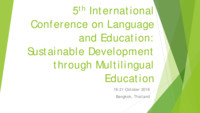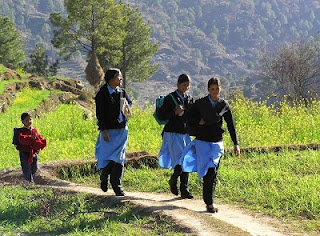MLE: India related MLE research

Research paper: Language and language-in-education planning in multilingual India It is fun to note when a good friend publishes on multilingual education in India. Dr Cynthia Groff has visited India many times and did her PhD research on the language and education situation among the Kumauni people in Uttarakhand. The full tittle of the paper is "Language and language-in-education planning in multilingual India: A linguistic minority perspective." and is based on Nancy Hornberger's language policy and planning seminar. The abstract states: "This article explores India's linguistic diversity from a language policy perspective, emphasizing policies relevant to linguistic minorities". Here are the details: Groff, C. (2016). Language and language-in-education planning in multilingual India: A linguistic minority perspective. Language Policy, in press . Available through 'online first', open access: http://link.springer.com/arti





